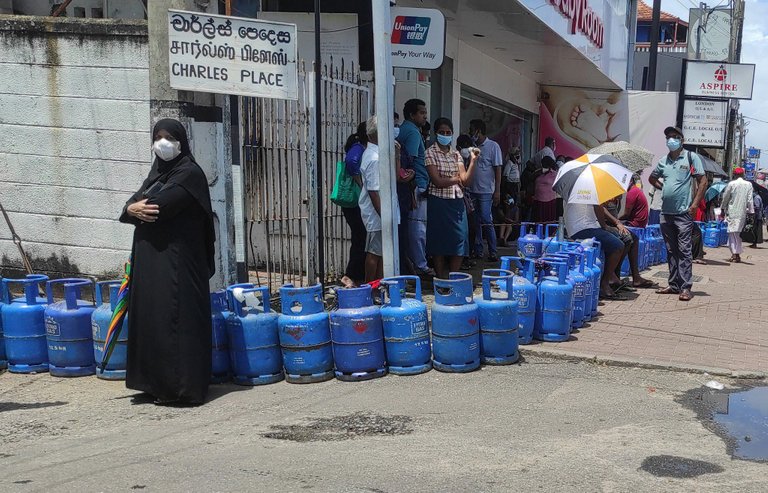Debt Justice Campaign Group Calls on External Creditors to Cancel Sri Lanka's $52bn Debt and Bear the Consequences of the Unjust Debt They Lend to the Country
Greetings to my esteemed friends on the InformationWar platform and the entire hive blockchain. It's another day and time to share with you happenings around the world and this time it's on the debate on debt cancellation in Sri Lanka. It's your friend @faquan, saying hello from this part of the world.

Sri Lanka continues to suffer from shortages of basic food, fuel and medicines as its awaits a rescue package from the IMF. The ongoing economic crisis has left at least 8 million Sri Lankans as food insecure.
According to World Bank estimates, Sri Lanka has an external debt burden of more than $52bn as of December. Of that, nearly 40 percent is owed to private creditors, including financial institutions, while the rest is owed to bilateral creditors where China (52 percent), Japan (19 percent) and India (12 percent) are the largest ones.
This is very huge for the island country to pay back. A group of 182 economists across the globe have asked the private lenders to cancel the debt in order for Sri Lanka to come out of the current economic situation.
Prominent economist such as Thomas Piketty who wrote the bestseller Capital, Harvard University economist Dani Rodrik and Indian economist Jayati Ghosh have issued a statement calling for the cancellation of Sri Lanka’s debt by all external creditors and measures to stem the illicit outflow of capital from the country.
This document was put together by the Debt Justice campaign group, a global movement against unjust debt ongoing across the world by external creditors who make huge profits from loans given to countries across the world.
The crust of their argument is that many external creditors have found it as an habit to give loans to corrupt politicians who amass these wealth for themselves, without any possible repayment plan, in other words keeping the nation under oppression by the external creditors.
Two major groups of academia and economists argued for and against the proposed Sri Lanka's debt cancellation and the first group argued that:
The private investors who lent at high interest rates to corrupt politicians must face the consequences of their risky lending by cancelling the debt.Source
Viewing this from one angle, you would see that most external creditors don't care about how these debts will be repaid and will love it to continue due to the high interest rates they get from the loan. According to them, since they are part of the reasons why the debt is increasing on a daily basis, they should bear the consequences by cancelling the debt.
Other groups of economists argued that debt cancellation isn't the best solution to Sri Lanka's problem. According to WA Wijewardene, a former deputy governor of the Central Bank of Sri Lanka, says that should the debt cancellation plan actually go through, it might lead to the collapse of the current global financial system.
The outcome of this debate is yet to be approved by the international financial institutions.